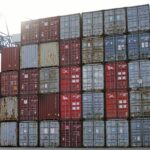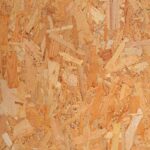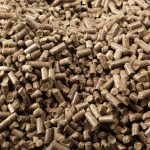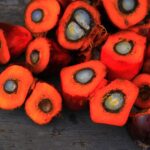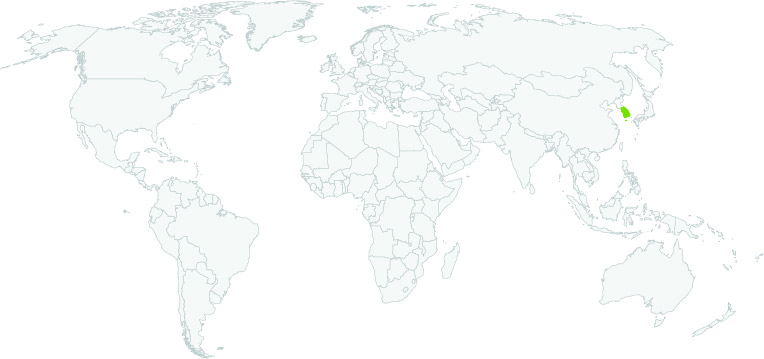
Amid global market volatility and climate challenges, Vietnam’s wood industry registered a historic threshold in 2025, with exports of timber and wood products exceeding US$17 billion for the first time, underscoring its role as a major export pillar of the national economy.
In 2025, exports of timber and wood products to the United States were estimated at US$9.46 billion, representing a year-on-year rise of 4.4% and accounting for approximately 55% of Vietnam’s total wood export value. Vietnam continues to hold its position as the largest supplier of wooden furniture to the US market.
In the first 11 months of 2025, wooden furniture exports reached US$9.434 billion, accounting for nearly 61% of the industry’s total export value. Several other product groups also recorded export turnover of US$1 billion or more each, including wood chips at US$2.22 billion; sawn wood, boards, and flooring at US$2.091 billion; and wood pellets at US$1.081 billion.
2025 presented unprecedented challenges for the industry. These included reciprocal tariff measures, anti-dumping and anti-subsidy investigations from the US, mounting pressure from the EU’s upcoming Anti-Deforestation Regulation (EUDR), as well as subsequent storms and floods at home that disrupted raw material supply chains and production.
Looking ahead to 2026, Nguyen Quoc Tri, Deputy Minister of Agriculture and Environment, said the forestry sector aims to maintain forest coverage at around 42%, achieve wood and forest product exports of roughly US$18.5 billion, and accelerate the development of large-timber forests. Key priorities include applying science and technology, advancing digital transformation, and strengthening trade promotion. Future efforts will also focus on diversifying export markets, reducing dependence on a small number of major markets, building the “Vietnamese Wood” brand, and expanding forest environmental services and the carbon market.
On December 3, 2025, the Office of the U.S. Trade Representative (USTR) issued a formal notice implementing certain tariff-related elements of this deal. The notice states that certain tariff modifications are necessary to implement the trade and investment deal. To do so, the Harmonized Tariff Schedule of the United States (HTSUS) has been amended to implement certain tariff elements, including: (i) the country-specific reciprocal tariffs; (ii) Section 232 tariffs on automobiles and automobile parts; (iii) Section 232 tariffs on timber, lumber, and their derivatives; and (iv) tariffs on certain aircraft and aircraft parts. In most instances, the tariff rate on most goods will be 15% or a “most-favored nation” tariff rate.
In recent developments, the Thai plywood industry has been scrutinized after Vietnam initiated an anti-dumping investigation into Thai Medium Density Fiberboard (MDF) and Particleboard on September 25, 2024. This was followed by South Korea launching a similar investigation on December 16, 2024. These actions have raised concerns among Thai exporters, prompting them to formally contest these allegations.
Vietnam has emerged as a crucial market for Thai MDF, with exports valued at $60.48 million in 2024. The accusations from Vietnam stem from a perception that Thailand’s competitive pricing is undermining local industries. Meanwhile, South Korea’s investigation appears to be influenced by environmental policy changes that have increased production costs for its local manufacturers.
Subsidies for forest biomass energy in Japan and South Korea are contributing to deforestation in Southeast Asia, according to an October 2024 report by environmental NGOs. The biomass industry is expanding especially quickly in Indonesia; the nation is exporting rapidly growing volumes of wood pellets, and is burning biomass at its domestic power plants.
Japanese trading company Hanwa confirmed that rainforest is being cleared to establish an energy forest plantation for wood pellet production in Indonesia’s Sulawesi Island. Hanwa owns a stake in the project. The wood pellet mill uses cleared rainforest as a feedstock while the monoculture plantation is being established.
A Hanwa representative defended the Sulawesi biomass project by claiming the area consists of previously logged secondary growth and that the energy plantation concession is not officially classified as “forest area.”
The preliminary results of the transaction verification (TV) loop on Vietnamese wood supply chains indicate that there are some potential discrepancies in transactions reported by the certificate holders included in this TV loop. Several suppliers declared fewer sales than the purchases reported by their customers.
The original scope of the TV loop included 424 certificate holders – 368 chain of custody and 56 forest management certificates; they were requested to submit their transaction data for 2022. However, 17 certificate holders did not respond, and their certificates were suspended by their respective certification bodies, some of which were subsequently terminated. Findings include:
- Some certificate holders sold products with FSC controlled wood claims to non-certified companies, which is against the normative provisions related to FSC controlled wood (FSC-STD-40-004-V1, clause 5.6).
- The volume of FSC controlled wood traded in the supply chains surpasses the volume of timber sourced from FSC-certified forests.
In July 2022, the European Union responded to the war in Ukraine by banning the import of Russian woody biomass used to make energy. At roughly the same time, South Korea drastically upped its Russian woody biomass imports, becoming the sole official importer of Russian wood pellets for industrial energy use.
The EU has reportedly replaced its Russian supplies of woody biomass by importing wood pellets from the U.S. and Eastern Europe. But others say that trade data and paper trails indicate a violation of the EU ban, with laundered Russian wood pellets possibly flowing through Turkey, Kazakhstan and Kyrgyzstan to multiple EU nations.
EU pellet imports from Turkey grew from 2,200 tons monthly last spring to 16,000 tons in September. Imports from Kazakhstan and Kyrgyzstan reportedly rose too, even though neither has a forest industry. A large body of scientific evidence shows that woody biomass adds significantly to climate change and biodiversity loss.
Enviva, the world’s largest woody biomass producer, which operates chiefly in the Southeast U.S., may be the big winner in the Russian biomass ban. Since the war began, Enviva has upped EU shipments, and also announced a 10-year contract with an unnamed European customer to deliver 800,000 metric tons of pellets annually by 2027.
Wood Central reports that, for April 2024, South Korean imports of Russian wood pallets jumped 27%, with more than 200,000 cubic tonnes traded from Moscow to Soel from January to April alone. 85% of Russia’s Logs Are Sent to China—Where Do They End Up? | Wood Central
Wilmar International’s No Deforestation, No Peat, No Exploitation policy, announced ten years ago, marked a significant milestone in environmental conservation by prohibiting deforestation, peatland destruction, land-grabbing, and labor abuses in their global supply chain, impacting thousands of palm oil companies.
The policy, a result of global campaigning and intense negotiations, contributed to a dramatic reduction in deforestation for palm oil by over 90%, influencing other industries and contributing to the lowest deforestation levels in Indonesia, as well as progress in Malaysia, Papua New Guinea, and tropical Africa, argues Glenn Hurowitz, the Founder and CEO of Mighty Earth, who led the negotiation with Wilmar.
Hurowitz says this “success story” highlights the importance of private sector involvement, effective campaigning, diligent implementation, the necessity of continuous effort, and the insufficiency of data alone in driving change.
Click here to access the Global Illegal Logging and Associated Trade (ILAT) Risk assessment tool and to download the Forest Trends User Guide describing the functionality of the ILAT Risk Data Tool.
Click here to access the Cattle Data Tool.


